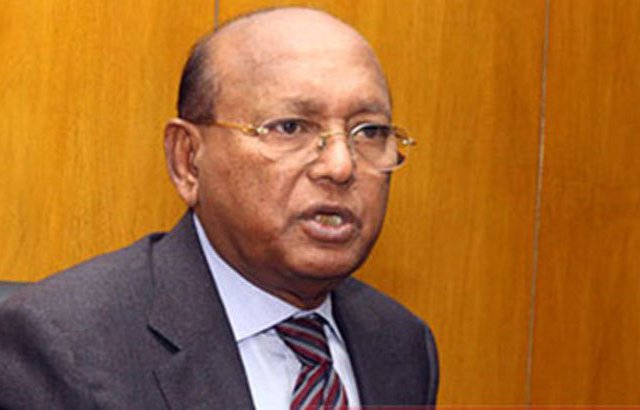By Maloy Kumar Dutta
DHAKA, June 6, 2020 (BSS) – Awami League Advisory Council member Tofail Ahmed said the seeds of Bangladesh’s struggle for independence were sowed in the six-point demand as raised by Bangabandhu Sheikh Mujibur Rahman, the Father of the Nation, in 1966.
“Actually, the Six-Point was the mantra or seeds of the struggle for independence,” he told BSS in an interview online today ahead of the historic Six-Point Day on June 7.
He termed the six-point demand as a charter for economic emancipation from the subjugation of Pakistani colonial state-system.
“Bangabandhu put forward the six-point before Pakistani authorities just after a few days of the signing of the Tashkent Treaty between India and Pakistan,” he said.
Tofail, who was vice-president (VP) of Dhaka University Central Students Union (DUCSU) during 1968-69 term, said Ayub Khan, the then military autocrat, used batons against the nation to crush down the six-point demands which eventually led to the war of independence in 1971.
“The Six-Point had created huge enthusiasm among party workers especially among us. Later, the six-point became so popular that this article was kept at every house of Bangla,” he said.
Tofail said Bangabandhu used to say that the six-point demand would pave the way for earning independence from the struggle for autonomy.
On June 7 in 1966, the Awami League (AL) under the charismatic leadership Bangabandhu called for a day-long hartal throughout East Pakistan, pressing the demand for autonomy to end the exploitation, deprivation, subjugation and tyranny of the then central government of Pakistan on the people here.
People took to the streets during the dawn-to-dusk hartal throughout the province and the law enforcement agencies, including the East Pakistan Rifles (EPR), opened fire on the demonstrators in Tongi, Dhaka and Narayanganj that left 11 people, including labour leader Monu Miah, Shafique and Shamsul Huq, dead.
Bangabandhu launched his historic six-point political and economic programme in Lahore on February 5 in 1966, aiming at attaining greater autonomy for the then East Pakistan in the backdrop of exploitation and discrimination by the then Pakistani rulers.
Paying glowing tributes to the June 7 martyrs, Tofail said actually the historic June 7 was the focal turn to spearhead the spirit of attaining autonomy and subsequently independence.
“We observe the historic Six-Point Day every year with due respect,” but this year the government has to cancel all programmes, including yearlong celebration of birth centenary of Bangabandhu, in the wake of the outbreak of novel coronavirus (Covid-19) pandemic worldwide, he said.
He said the six-point demand and June 7 is an integral part of the country’s history and it had significant role to the struggle for independence.
Tofail said subsequently, the six-point demand was turned into an 11-point demand in the 1969 mass-upsurge.
“On the basis of the historic 11-point movement, we freed Bangabandhu from Pakistani jail on February 22, 1969,” he added.
As a mark of gratefulness of the nation to Bangabandhu, the Sarbadaliya Chhatra Sangram Parishad (All Parties Students Resistance Council) had given a mass reception to him at Suhrawardy Udyan (Racecourse ground) and conferred him with the title Bangabandhu (Friend of the Bengal) on February 23, said Tofail Ahmed, who was the vice-president (VP) of the then Dhaka University Central Students’ Union (DUCSU) and convener of the Chhatra Sangram Parishad.
“Under the leadership of Bangabandhu, we won the 1970 general election and subsequently he had led the Liberation War to attain the independence for the country in 1971,” he said.



